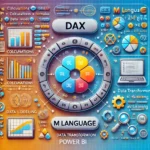BigQuery vs. SQL: Unveiling the Differences and Making the Right Choice
In the world of data management and analysis, two powerful contenders have taken the spotlight: BigQuery and SQL. Both play crucial roles in handling and querying data, but they are not quite the same. In this blog post, we’ll dive into the key differences between BigQuery and SQL, and help you understand when to choose one over the other.
Understanding BigQuery and SQL
BigQuery: BigQuery, developed by Google, is a fully-managed, serverless, and highly-scalable data warehouse and analytics platform. It’s a part of the Google Cloud ecosystem and is designed to handle large datasets with lightning-fast processing speeds using a distributed architecture. BigQuery uses a variant of SQL for querying, making it accessible to those familiar with SQL concepts.
SQL: Structured Query Language (SQL) is a domain-specific language used to manage, manipulate, and query relational databases. SQL has been the cornerstone of data manipulation for decades and is supported by virtually every relational database system. It provides a standardized way to communicate with databases and retrieve, manipulate, and analyze data.
https://synapsefabric.com/2023/08/18/cloud-data-warehouse-comparison-bigquery-vs-snowflake/
Comparing BigQuery and SQL
Let’s take a closer look at the differences between BigQuery and SQL:
| Aspect | BigQuery | SQL |
|---|---|---|
| Infrastructure | Fully-managed and serverless. | Requires infrastructure setup and maintenance. |
| Scalability | Auto-scales to handle massive datasets. | Scalability depends on database configuration. |
| Performance | Optimized for large-scale, parallel processing. | Performance depends on hardware and indexes. |
| Cost | Pay-as-you-go pricing model. | Initial setup cost and ongoing maintenance. |
| Data Format | Supports semi-structured and nested data. | Primarily works with structured tabular data. |
| Query Language | Utilizes a subset of SQL for querying. | Standard SQL syntax for querying. |
| Use Case | Best suited for analyzing petabyte-scale data. | Ideal for small to large-scale data analysis. |
| Ease of Use | User-friendly, especially for complex queries. | Requires expertise in managing SQL databases. |
| Speed | In-memory processing for high-speed querying. | Speed can vary based on database optimization. |
| Integration | Integrates seamlessly with other Google services. | Works with a variety of database management systems. |
When to Choose BigQuery
BigQuery shines when dealing with massive datasets that need lightning-fast processing. If your organization deals with petabytes of data and requires complex analytics at a rapid pace, BigQuery’s distributed architecture and automatic scalability make it an excellent choice. It’s particularly beneficial if you’re already invested in the Google Cloud ecosystem.
When to Choose SQL
SQL is the go-to choice for a wide range of applications. If you’re dealing with relatively smaller datasets, have an existing SQL database setup, or require more control over your infrastructure, SQL is a solid choice. It’s also preferable if your team is well-versed in SQL query optimization and database management.
In the BigQuery vs. SQL debate, the right choice boils down to your organization’s specific needs and expertise. If you’re dealing with massive datasets and require top-notch performance, BigQuery is a powerful solution. On the other hand, if you’re working with more manageable data sizes and want more control over your infrastructure, SQL remains a reliable option.
Remember, both BigQuery and SQL have their strengths, and the decision should be based on the unique requirements of your projects and the capabilities of your team. Regardless of which you choose, the ultimate goal is to harness the power of data to make informed decisions and drive your business forward.






